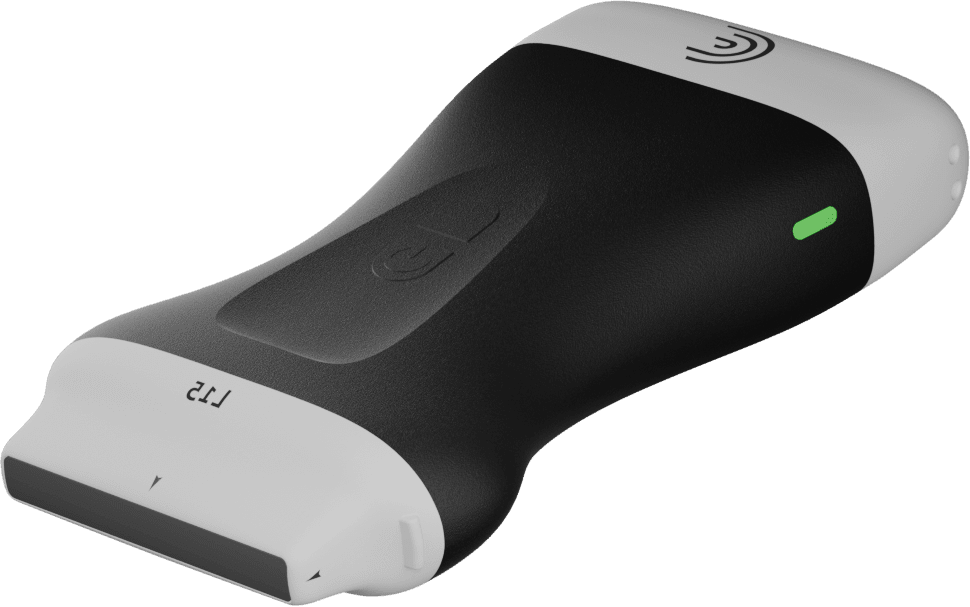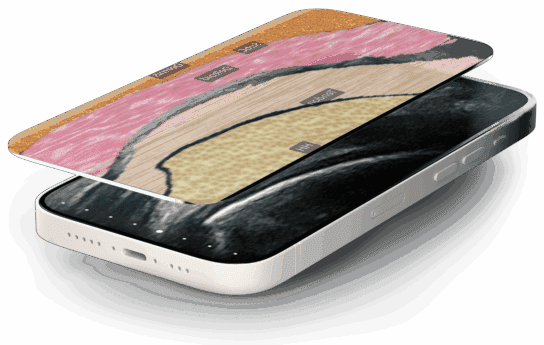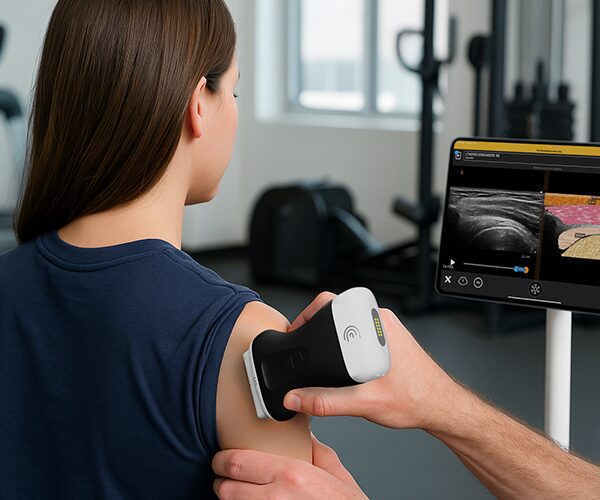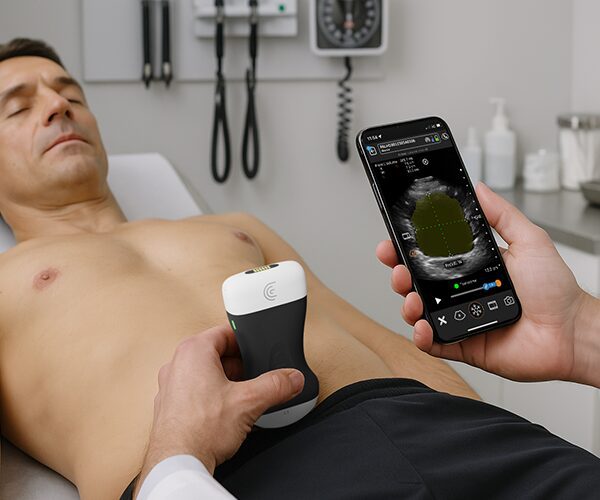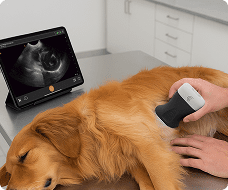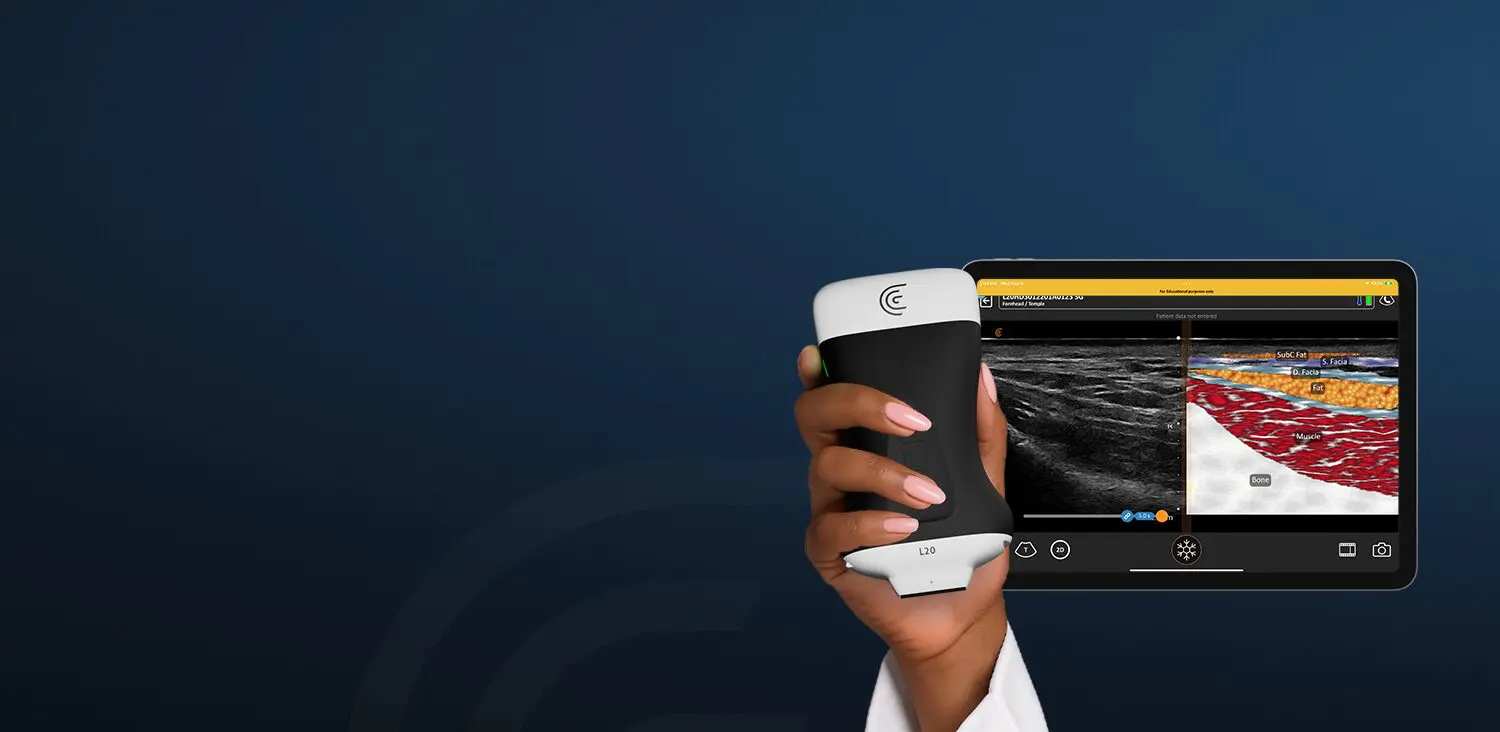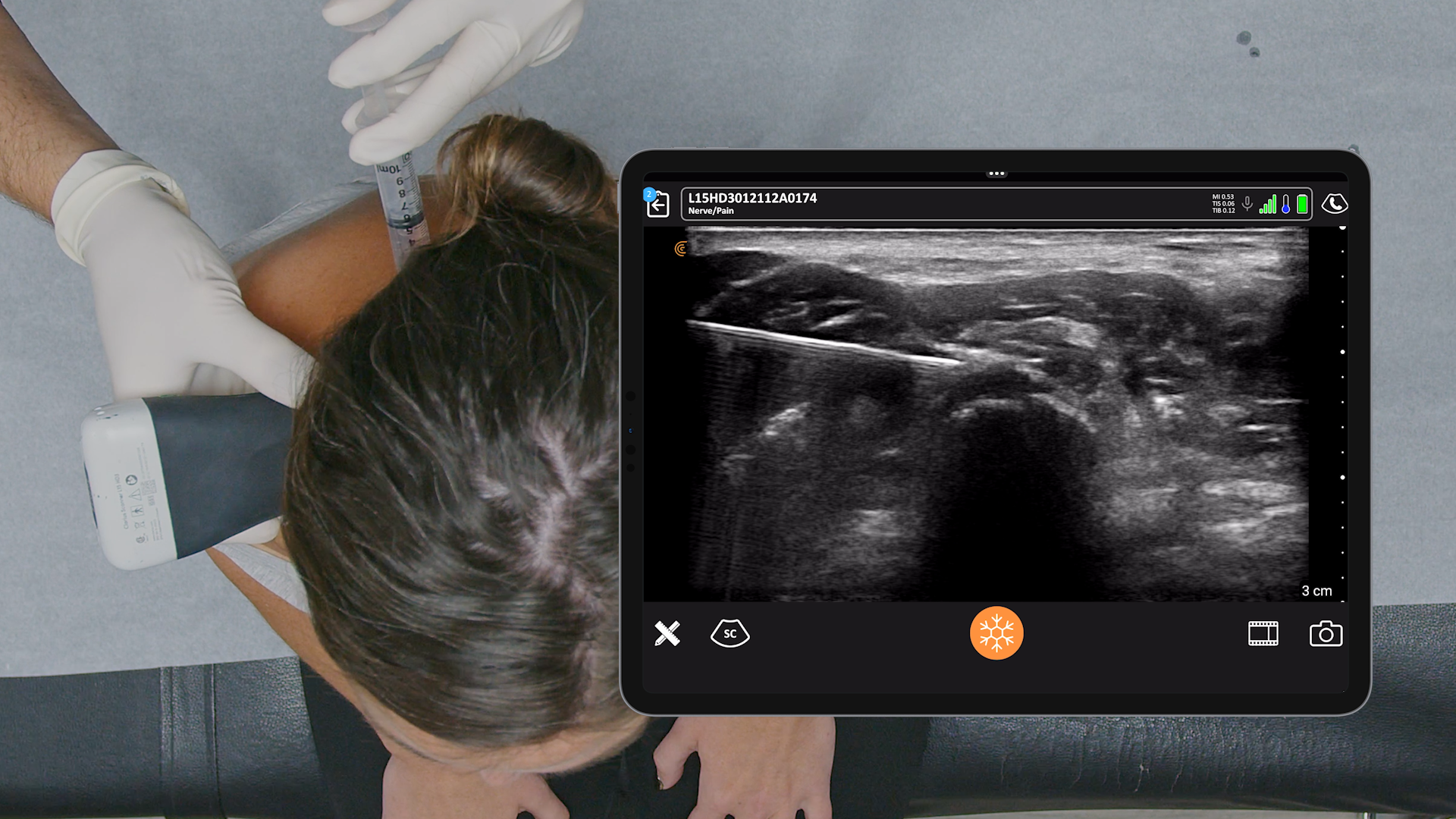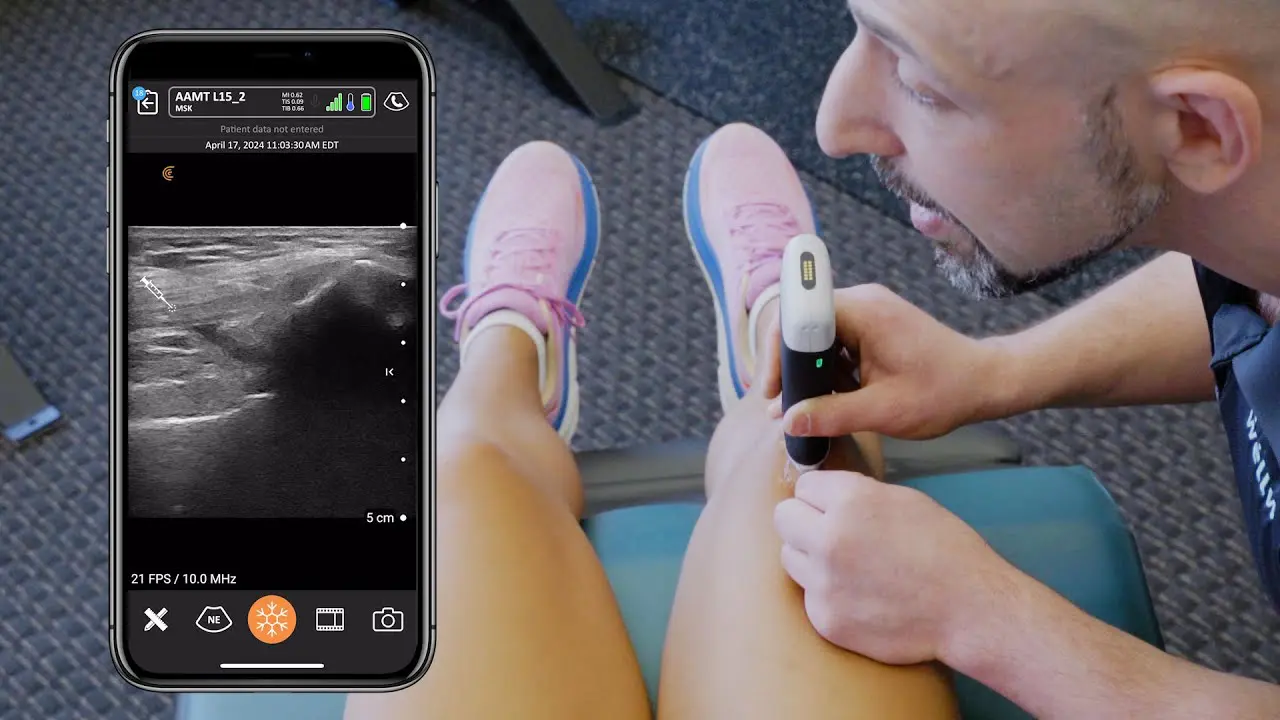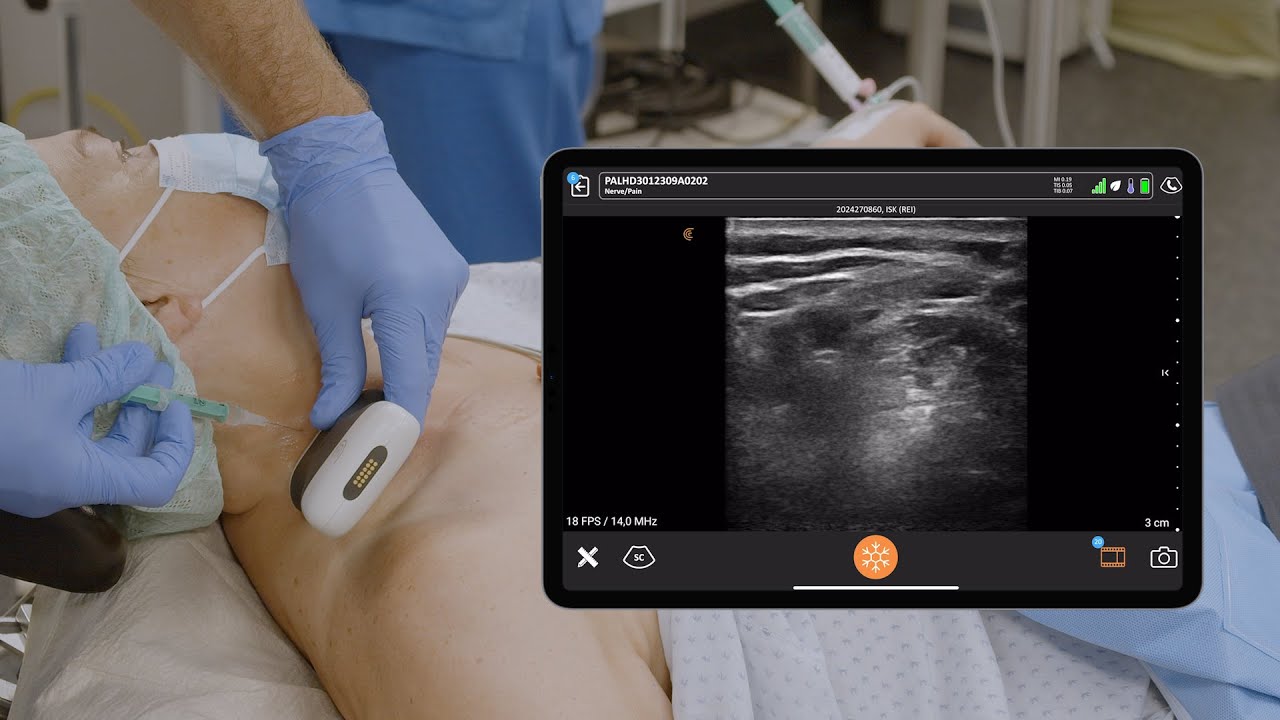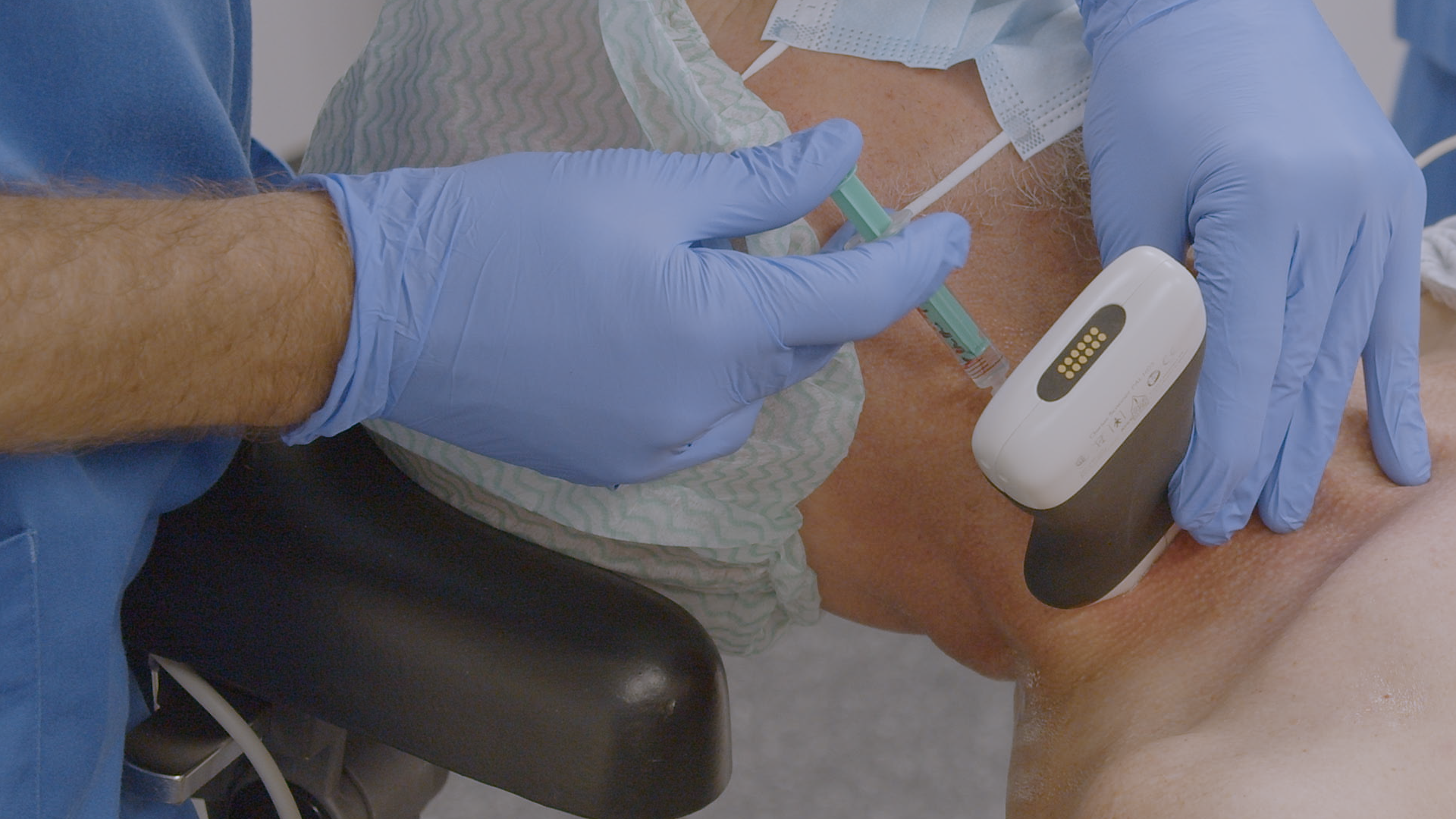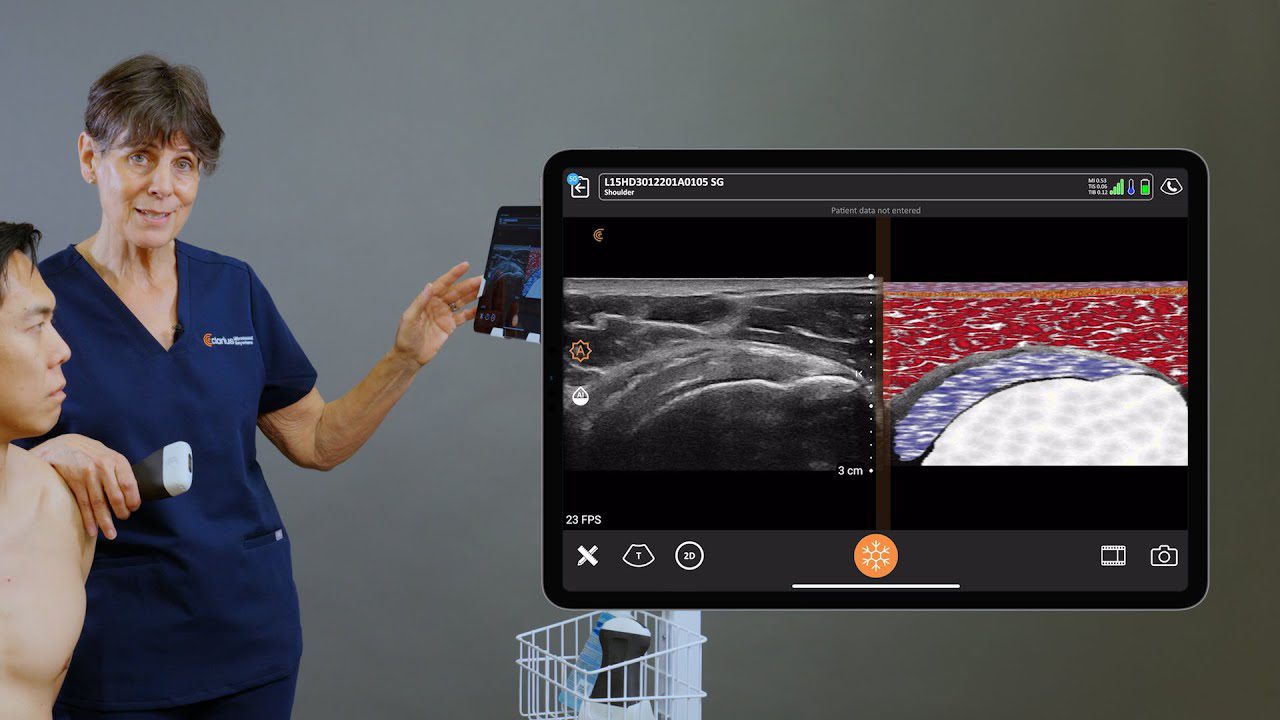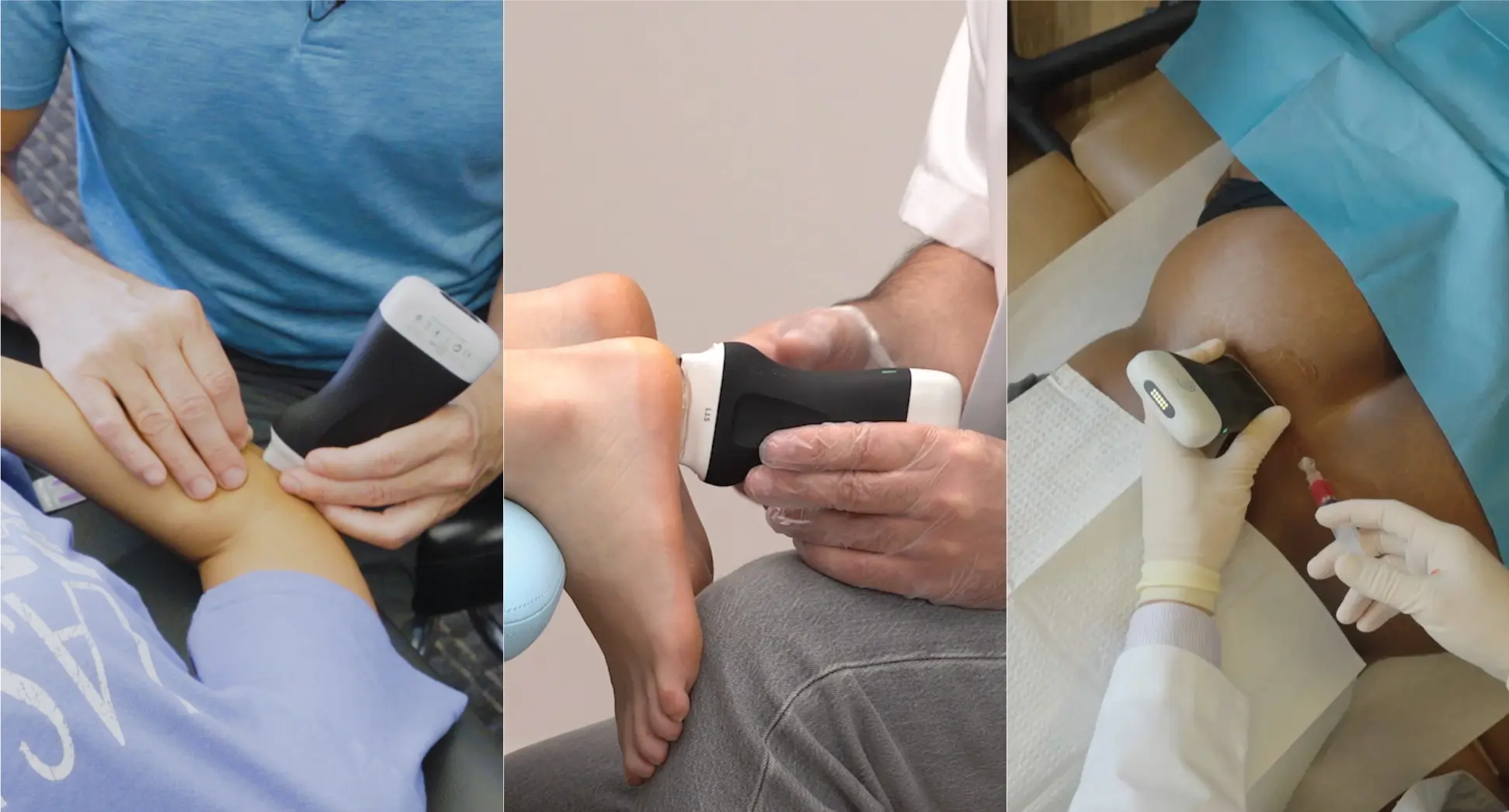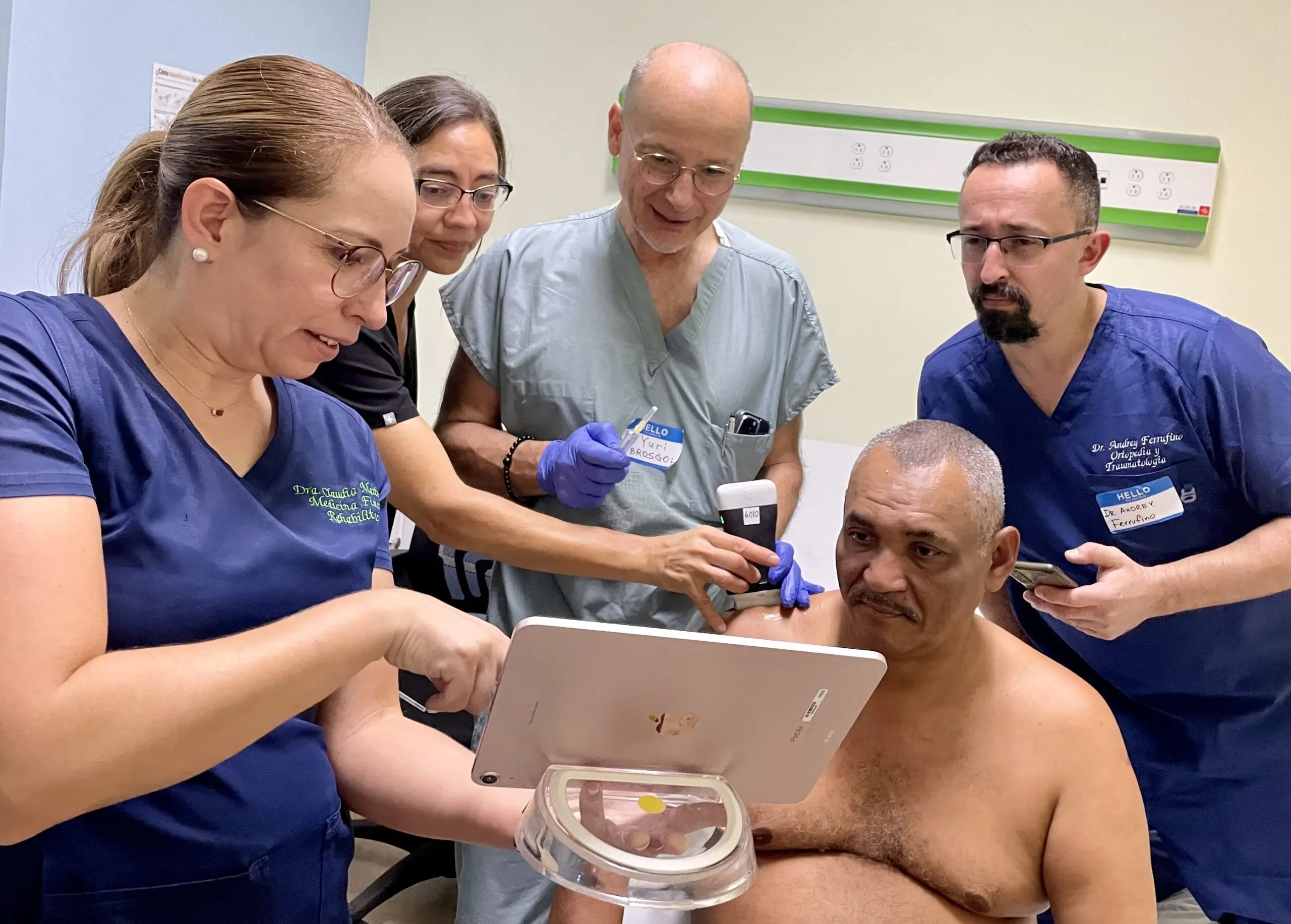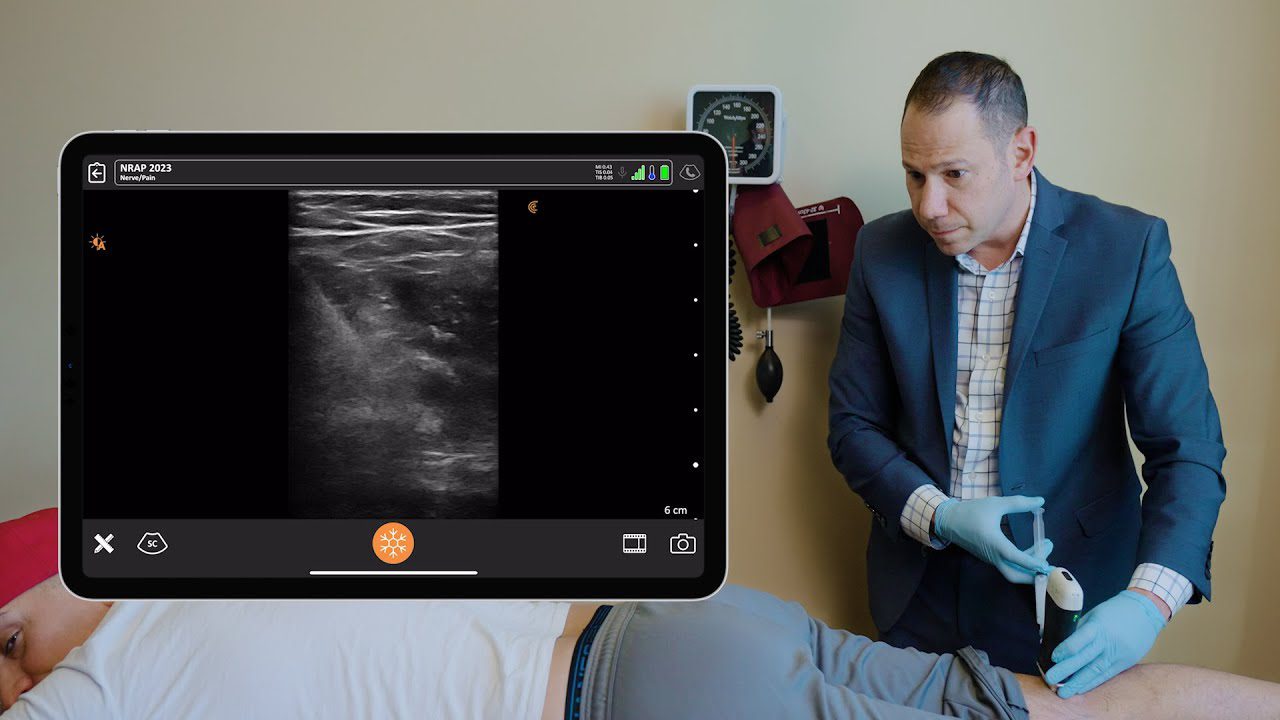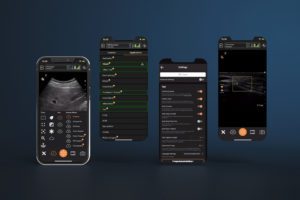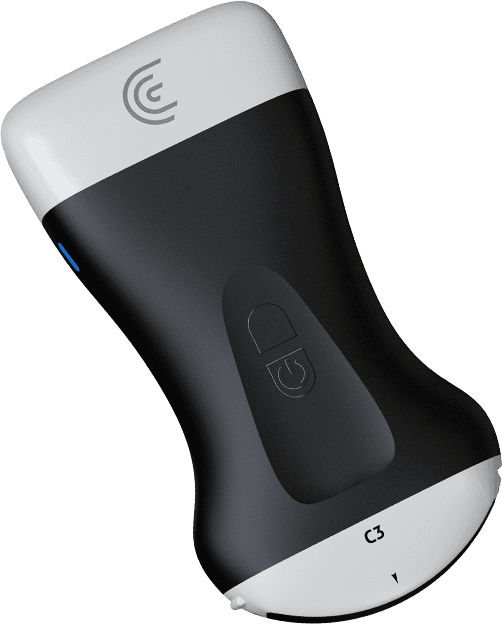It’s more than two years since COVID-19 upset many facets of our lives. While many things are back to something resembling a pre-pandemic normal, healthcare is still feeling the effects of supply chain disruptions.
For example, when lockdowns happened in China earlier in 2022, many plants were shut down, including GE’s plant where the entire market’s supply of iodine-based IV contrast agents used in many types of imaging is made. While some agents are slowly becoming more available, this contrast shortage still persists.
Now, regional anesthesiologists and pain specialists who rely on CT imaging and fluoroscopy to guide procedures are faced with telling their patients they must delay their procedures, or conduct those procedures without the benefit of imaging. Not using imaging increases the risks for patients, who are left with the unpleasant choice of living with pain or undergoing a procedure knowing they are at increased risk for error.
Instead, some physicians are switching to ultrasound imaging to visualize critical anatomy and perform injections safely and easily and help their patients get immediate relief from pain.
If you don’t have a fluoroscope available, you can still help patients who have had lumbar radicular pain,” says Dr. David Rosenblum, Director of Pain Management at Maimonides Center in New York. “The same applies to the cervical or thoracic spine. You can do thoracic paravertebral nerve blocks. A lot of people don’t realize that pocket-sized scanners like Clarius are available, affordable and easily implemented. I foresee that ultrasound is going to be more common in the pain practice, possibly standard.”
In a recent article from Pain Management News, ASRA President Samer Narouze, MD, PhD encouraged regional anesthesiologists to consider ultrasound and talked about some of the reasons why today’s newer ultrasound solutions can be great alternatives – or even replacements – to CT imaging.
So, we have learned from our current shortage of contrast agents that [there] are some procedures that we cannot perform. And suddenly, there is more interest in the utilization of different imaging modalities that do not require the use of contrast agents. So, ultrasound in the field of interventional pain management has been [available] for the past, I would say, 10 to 15 years,“ says Dr. Narouze, „…I’d like to take advantage of this struggle, and transfer it to an opportunity for pain physicians to practice more ultrasound, for different reasons. [It] may be safer, [there’s] no radiation, [and it may be] better to the environment.“
Read on to learn why you should consider adding ultrasound to your pain management practice.
1. Ultrasound imaging may be safer for your patients than using contrast.
Ultrasound doesn’t use contrast to visualize anatomic structures. With no worry about patient contraindications or risk of side effects from contrast, ultrasound can be used safely and effectively for nerve blocks and other needle-guided procedures. Ultrasound also does not use or expose the patient to radiation, which means that procedures can be performed without consideration for radiation shielding and special equipment.
2. The newest ultrasound scanners are handheld, wireless, easy to learn, and simple to use.
With the emergence of high-quality handheld ultrasound systems, clinicians no longer need to be concerned about the expense and long learning curve required with a complex piece of bulky medical equipment. For example, the Clarius HD3 is a lightweight, fully wireless handheld ultrasound unit that is the size of an iPhone and connects seamlessly to an IOS or Android device. Clinical specialists help customers get started with complimentary in-service training, and Clarius Membership provides in-app training while Clarius Classroom tutorials help clinicians quickly become proficient.
3. Handheld ultrasound provides high-quality images on par with traditional fluoroscopy as well as more traditional ultrasound systems.
With Needle Enhance technology, Clarius high-definition ultrasound gives you sharp and clear imaging of tiny nerves and surrounding anatomy, helping you perform nerve blocks with confidence and deliver medication to the correct location every time. With clear nerve and musculoskeletal imaging, watch your needle hit the target with 100% accuracy, even with deeper injections.
4. The latest wireless ultrasound scanners are highly cost-effective and allow you to keep your productivity high.
With an acquisition cost starting under 4,000 USD with Clarius Membership, you can cost-effectively bring wireless ultrasound to your practice and achieve a quick return on your investment while keeping patient satisfaction high. By having ultrasound available among your tools, you can keep productivity high and provide accessible relief for patients when they need it most.
Don’t let the lack of contrast prevent you from bringing pain relief to your patients. Ultrasound-guided injections have proven to exhibit significantly greater accuracy and deliver greater clinical improvement when compared to not using imaging. Recognized for the best imaging quality among wireless handheld systems, Clarius HD3 is highly affordable (representing up to 85% savings over compact systems), and easy to learn and use. To learn more, visit our pain management page.
Sources/references:
